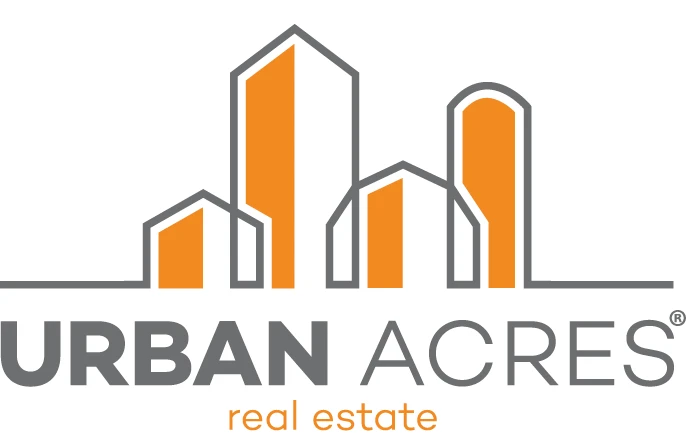What is Home Equity?
One of the greatest benefits of owning a home is building equity. Unlike renters, who pay the property owner a monthly rental payment, homeowners build equity each time they pay their mortgage. As a homeowner, you have the freedom to make your home truly yours, and you may also be able to tap into the equity you’ve built while living there.
Put simply, home equity is the part of the home you own. It represents the difference between your home’s market value and the amount you still owe on your mortgage. As you pay down your mortgage or as your home’s value appreciates, your equity increases. According to recent data from the St. Louis Federal Reserve, American homeowners have nearly $30 trillion in home equity, which is only slightly less than the 2022 peak.
How to Calculate Your Home Equity
Wondering how much equity you have in your home? To calculate your home equity, subtract your home’s market value from the balance of your mortgage.

Image Source: Citizens Bank
For example, if your home is worth $350,000 and your mortgage balance is $250,000, your home equity would be $100,000.
So what should you do with your equity? Some people leverage their home equity to make improvements to increase their home’s value. Others use it to consolidate high-interest debt and put themselves in a better financial position. Many people don’t use their equity at all—they let it build so they can use it later for larger investments or retirement.
As with all financial decisions, using your home equity comes with certain risks. The most obvious of those risks: being unable to repay the loan and losing your home. But as long as you’ve carefully considered the risks and consulted with a financial advisor, leveraging your home equity can be beneficial for your financial situation.
Here are some of the most common reasons people decide to tap into their home equity.
Reasons to Use Your Home Equity

To Make Home Improvements
Whether you want to install new flooring, renovate an outdated bathroom, or make your kitchen more functional, home remodeling is a major expense. According to Angi (formerly Angie’s List), the average cost of remodeling a home is $50,291 for a 1,250- to 1,600-square-foot home. For older homes, renovations can cost upwards of $100,000. Most people aren’t able to pull this money from savings. Only 21 percent of Americans report having more than $5,000 in their savings accounts.
This is an opportunity to use home equity to your advantage. Even simple updates, like new flooring or new cabinets, can make a huge difference in your space. If you plan to put your home on the market, you might be considering a home equity loan to make upgrades and maximize the value of your home.
One important thing to keep in mind is that you must pay back your loan before you sell your home. However, a home equity loan can be a viable option if you have the financial discipline to repay the loan diligently and don’t plan to sell your home immediately.

To Consolidate Debt
As many people prepare to purchase a home, they work to pay down debt and improve their credit scores. If you have a high-interest credit card or loan, it can feel like you’re making little progress toward paying off the loan’s principal, especially if you only make the minimum payment.
Home equity loans often come with a lower interest rate than many credit cards. But if you consolidate outstanding debt with a home equity loan and fail to make payments on the loan, your home serves as collateral and could lead to foreclosure.

To Cover Emergency Expenses
Unexpected expenses are a part of life. With the responsibilities of homeownership come the costs of repairs and maintenance. You might need to replace an appliance or repair the damage caused by a leaking pipe. When you need cash for urgent home repairs or other emergency expenses, your home equity can help you get your head above water again.
Ways to Take Advantage of Your Home Equity
Unfortunately, your home equity isn’t a pile of cash just sitting in a bank account waiting for you to make a withdrawal. As with your mortgage, you’ll need approval from a lender to start using your home equity.
Generally, homeowners have three options when it comes to home equity loans: a fixed-rate home equity loan, a home equity line of credit (HELOC), or a cash-out refinance.
Fixed-Rate Home Equity Loans
This type of loan provides a lump sum with a fixed interest rate and fixed repayment term—typically between five and 15 years.
Benefits:
- Predictable Payments: Since interest rates and monthly payments are fixed, borrowers can budget more effectively and know exactly what to expect.
- Lower Interest Rates: Home equity loans typically offer lower interest rates than other forms of loans, including personal loans or credit cards.
- Lump-Sum Payments: Borrowers receive a one-time lump sum payment, which can be immediately used to cover one-time expenses like home improvements or to consolidate debt.
- Tax-Deductible: If the loan is used for home improvements or repairs, the interest paid on your home equity loan is often tax-deductible.
- More Borrowing Power: Home equity loans may allow borrowers to take advantage of larger sums of money than other types of loans.
Important Considerations:
- Risk of Foreclosure: Failing to repay your loan could result in the loss of your home.
- Amount Needed: A lump-sum payment can be ideal, but it can also lead to taking out more money than necessary and eroding your home’s equity.
- Interest on Full Loan Amount: Regardless of whether you use the full sum of the loan, you’ll be charged interest on the full loan amount, which may result in high monthly payments.
Home Equity Line of Credit (HELOC)
A HELOC works like a credit card, allowing you to borrow up to a certain limit over the life of the loan. It has a variable interest rate and a draw period when you can use the funds, followed by a repayment period.
Benefits:
- Low Interest Rates: When compared to other types of loans, HELOCs generally have lower interest rates, making them a cost-effective borrowing option.
- More Flexible Funds: You can use the funds from your HELOC as needed and pay interest only on the amount you’ve withdrawn. This can provide more flexibility in managing your expenses.
- Tax-Deductible: Like fixed-rate home equity loans, interest paid on a HELOC can be tax-deductible if used for home improvements.
- Extended Access to Cash: With a HELOC, you have more time to withdraw funds and a continuous source of financing for ongoing or future expenses.
- No Restrictions on Use: Funds from a HELOC can be used for various purposes including home renovations, debt consolidation, or unexpected expenses.
Important Considerations:
- Variable Rates: A HELOC’s variable interest rate can make budgeting for payments difficult with constantly fluctuating rates.
- Higher Payments During Repayment Period: If you make interest-only payments during the draw period and borrow a large sum, your monthly payments will be much higher once the draw period ends and you begin repaying the principal balance.
- Rates Tied to the Prime Rate: HELOC interest rates are tied to the prime rate, which means that when rates rise or fall, the rate on your HELOC does too.
Cash-Out Refinance
A cash-out refinance involves replacing your current mortgage loan with a new loan for more than the amount you owe. You receive the difference in cash.
Benefits:
- Access to a Lump Sum of Money at a Low Interest Rate: Compared to credit cards and other personal loans, a cash-out refinance can provide funds at a lower interest rate.
- Potential to Boost Your Credit Score: When you use the funds to consolidate high-interest debt, your credit utilization may decrease, which may potentially improve your credit score.
- Tax-Deductible: Interest paid on a cash-out refinance is also tax-deductible if used for home improvements.
- Flexible Usage: Many people use their cash-out refinance to fund home improvements, consolidate debt, pay for higher education, or make other investments.
Important Considerations:
- Reduced Equity: A cash-out refinance depletes your ownership stake in your home, putting you at greater risk of defaulting on your loan.
- Extended Mortgage Term: You might be in debt for a longer period with a cash-out refinance because it extends the life of your mortgage.
- Higher Total Debt: Since you’re taking out a larger loan and tapping into your home’s equity, you’ll owe more overall.
Questions to Ask Before Deciding on a Home Equity Loan

What is my credit score?
According to Experian, you’ll likely need a FICO score of at least 680 to be approved for a home equity loan or HELOC. Some lenders may prefer a credit score of 720 or more. Either way, you’ll want to closely monitor your score before applying for a home equity loan.
Is my income stable?
Lenders typically look for a steady income to ensure borrowers can afford the ongoing monthly payments. Though there isn’t a set income requirement, a reliable source of income indicates that the borrower can make the necessary payments.
Can I afford the fees associated with the loan?
Home equity loan fees can include origination fees, appraisal fees, credit report fees, title insurance, legal fees, and closing costs. Typically buyers can expect to pay between two and five percent of the total loan amount in closing costs. If you can’t afford to pay these fees out of pocket, a home equity loan might not be possible.
What’s my debt-to-income ratio?
As with any loan, lenders consider a borrower’s debt-to-income ratio (DTI) when applying for a home equity loan. Many lenders prefer a DTI of less than 43 percent.
Are there other options that would allow me to achieve my goals?
If you’re strapped for cash, a home equity loan probably won’t meet your needs. A home equity loan may also provide more funds than you need. Consider applying for a personal loan or a personal line of credit instead. You can also look for credit cards with zero percent introductory interest rates. Funding projects during this introductory period will allow you to achieve your goals while minimizing your fees and risks.
The Bottom Line
No matter which home equity loan you choose, the most significant risks will always be losing your home and depleting your hard-earned equity. Taking advantage of home equity can be one way to achieve your goals, but it’s not always the right option. You’ll want to consult with your financial advisor and lender while weighing the pros and cons.
It’s also a good idea to talk to a REALTOR®. Our agents are here to be a resource during the buying and selling process and throughout your homeownership journey. If you’re planning to use a home equity loan to renovate your home, your REALTOR® can help you determine which updates will give you the best return on your investment. We’ve seen many sellers invest in costly improvements that add little value—and we want to save you from making that same mistake!
Reach out today and let’s talk about your goals.





